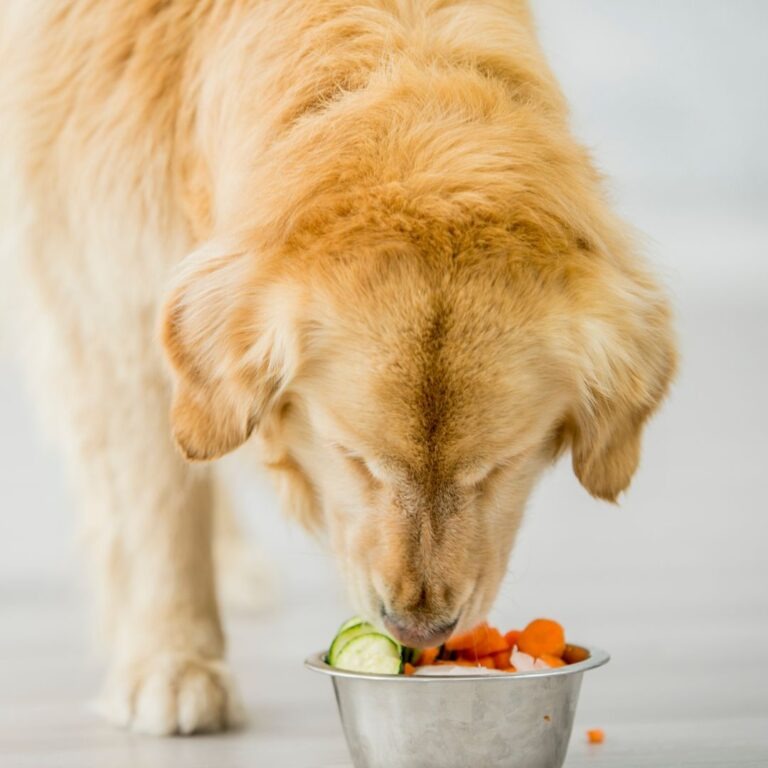
Introduction to Canine Nutrition
Proper nutrition is vital for your dog’s health. It is the foundation on which a healthy life is built. Just like humans, dogs need a balanced diet to thrive. This includes proteins, fats, carbohydrates, and, importantly, vitamins. Vitamins for dogs support various bodily functions and prevent deficiencies. They are organic compounds that your dog might not get enough of from their regular diet. These vitamins are crucial for maintaining energy levels, bone health, and overall wellness.
Each vitamin serves a unique role in canine health. Some boost the immune system while others promote good vision. A well-rounded diet often includes these essential vitamins. However, sometimes dogs need an extra boost. This is where vitamin supplements come in. Remember, giving your dog too much of a certain vitamin can also cause issues. Balance is key. We will explore each essential vitamin for dogs in the following sections. They will help you understand what your dog needs for a healthy life.
Vitamin A: Benefits for Dogs
Vitamin A is crucial for dogs. It helps maintain healthy vision and skin. It also supports the immune system and promotes proper muscle and nerve functions. Dogs deficient in vitamin A can experience vision problems and skin disorders. Feeding your dog foods rich in vitamin A, like liver, fish, and leafy greens, can help. But, you should also consider supplements as they ensure your dog gets an adequate amount.
Be mindful not to over-supplement, as too much vitamin A can lead to toxicity. Symptoms of too much include dry skin, lethargy, and joint pain. Always talk to a vet before starting any new supplements for your dog. They can guide the right dosage for your dog’s size and dietary needs. This way, you can provide the benefits of vitamin A without the risks.
Vitamin D: Ensuring Healthy Bones and Immunity

Vitamin D is essential for dogs’ bone strength and immune function. It helps them absorb calcium and phosphorus, two vital minerals for maintaining healthy bones and teeth. Vitamin D deficiency in dogs can lead to bone disorders, such as rickets or osteomalacia in adults, and impact their overall health.
Sunlight is a natural source of Vitamin D, but it is not always sufficient. Dogs that spend a lot of time indoors may require dietary sources or supplements to get enough Vitamin D. This vitamin is present in foods like fish oil, beef liver, and egg yolks. Commercial dog foods often include Vitamin D, but the amounts vary.
Supplementing your dog’s diet with the right amount of Vitamin D is important, but too much can be harmful. Vitamin D toxicity can cause serious health issues, including kidney damage. Symptoms of an excess include vomiting, lethargy, and loss of appetite.
Consulting a veterinarian is vital before adding any supplements. They can recommend the right dosage or dietary adjustments. This ensures your dog benefits from Vitamin D without facing undue health risks.
Vitamin E: The Role in Canine Skin and Coat Health
Vitamin E plays a vital role in dog health. It acts as an antioxidant, protecting cells from damage. Moreover, it contributes greatly to the health of a dog’s skin and coat, providing a natural glow and preventing issues like flakiness and irritation.
Dogs with poor skin health often benefit from vitamin E. Paw pads and elbows stay supple and less prone to drying and cracking with adequate vitamin E intake. In addition, it helps prevent certain skin conditions that can lead to discomfort and more serious health problems.
Foods rich in vitamin E include plant oils, like wheat germ and sunflower oil, as well as leafy greens and nuts. While most commercial dog foods contain this vitamin, some dogs might still need an extra boost. This can be especially true for dogs with dull coats or dry skin.
Supplemental vitamin E should be given carefully. As with other vitamins for dogs, the right balance is necessary. Too much vitamin E can lead to health issues, although it is less toxic compared to fat-soluble vitamins like A and D. The right dosage of this vitamin supports canine skin and coat health without risking overdose.
It’s always best to consult with a vet to determine if your dog can benefit from additional vitamin E. They will consider your dog’s health, diet, and lifestyle before making a recommendation. With professional guidance, you can ensure your dog’s skin and coat are as healthy as possible.
Vitamin K: Importance in Blood Clotting
Vitamin K is key for your dog’s blood clotting abilities. Without it, dogs could bleed excessively from just a small injury. It helps in the production of important blood-clotting factors. This vitamin is critical for wound healing and preventing hemorrhages.
This vitamin is fat-soluble. It is stored in the liver and comes in two forms: K1 and K2. Plants like leafy greens provide Vitamin K1. Your dog’s body makes Vitamin K2 with the help of good bacteria in the gut.
Most dog foods contain enough Vitamin K. But, in certain cases, supplements might be necessary. Liver, some cheeses, and egg yolks are good natural sources. It is rare for dogs to have a Vitamin K deficiency. Yet, it can happen, especially if they consume certain types of rodent poisons.
Talk to your vet if you suspect a deficiency or before starting supplements. They can recommend the safe amounts for your dog. Right levels of Vitamin K help maintain your dog’s health without the risk of side effects.
B Vitamins: Energy and Metabolism Boosters

B vitamins are critical for your dog’s energy and metabolism. These water-soluble vitamins play a pivotal role in supporting a healthy nervous system and aiding in energy production. They also help in the creation of red blood cells, which carry oxygen to the body’s tissues.
B vitamins include a group of distinct vitamins like B1, B2, B3, B5, B6, B7, B9, and B12. Each one has a unique function. For instance, B1 (thiamine) helps convert glucose into energy. B2 (riboflavin) maintains proper enzyme function. B3 (niacin) supports skin and coat health, along with B5 (pantothenic acid) aiding in energy metabolism.
B6 (pyridoxine) is especially vital as it plays a part in hormone regulation, immune response, and nerve function. B7 (biotin) is well-known for its role in maintaining good coat and skin health. B9 (folic acid) assists in amino acid metabolism and the formation of blood cells, and B12 (cobalamin) is essential for nervous system health and cell growth.
Many commercial dog foods are formulated with B vitamins. But, some dogs might need further supplementation, particularly if they have specific health needs or dietary restrictions. Discussing with a vet is crucial before starting any new vitamin regimen. They can assess your dog’s diet and health to ensure appropriate B vitamin intake.
Over-supplementing can cause problems. For example, too much B6 can lead to nerve damage. Following a vet’s guidance helps ensure that your dog gets the energy and metabolism boost needed, without the risks of overdoing it. With the right balance, B vitamins can help keep your dog healthy and full of vitality.
Vitamin C: Should Dogs Take It?
Many people associate Vitamin C with boosting human immunity, but its benefits extend to dogs as well. Unlike humans, dogs typically produce Vitamin C in their livers. This means that they might not need supplements in their diet under normal circumstances. Yet, some situations can increase their need for this vitamin.
Dogs under stress, aging pets, or those with certain medical conditions may require extra Vitamin C. It can help support the immune system, reduce inflammation, and improve overall health. However, giving your dog Vitamin C supplements without a reason may not be beneficial. In some cases, too much of this vitamin can cause stomach upset or kidney stones.
When considering Vitamin C for dogs, it’s vital to get advice from a veterinarian. If your vet does recommend it, they will guide the right dosage for your pet. Remember, vitamins for dogs are about balance. Providing the right amount ensures your dog gets the benefits without any unnecessary risks.
Natural sources of Vitamin C include fruits and vegetables like oranges, strawberries, and bell peppers. While these can be healthy treats for your dog, always serve them in moderation. Too much fruit can lead to excess sugar intake. Stick to small amounts and focus on those safe for dogs.
To sum up, while Vitamin C is not usually needed for dogs as a supplement, certain conditions may make it beneficial. Always consult with a vet to ensure your dog’s diet includes the necessary vitamins for dogs. This will help your dog stay healthy and happy.
Tips on Providing Vitamins to Your Dog

Ensuring your dog receives the right vitamins is crucial for their health and well-being. Here are some tips on adequately providing vitamins for dogs:
- Consult a Veterinarian: Always talk to a vet before changing your dog’s diet or adding supplements. They can advise on the appropriate vitamins and dosages based on your dog’s specific needs.
- Balanced Diet: Opt for high-quality commercial dog foods that are balanced and formulated to meet all nutritional requirements, including essential vitamins for dogs.
- Natural Sources: Incorporate whole foods into your pet’s diet. Foods like meats, eggs, and vegetables can offer natural sources of vitamins.
- Read Labels Carefully: When choosing vitamin supplements, check the labels for dosage instructions and ingredient lists to avoid harmful additives.
- Monitor Health Changes: Keep an eye on your dog after introducing new vitamins. Look for positive signs of health or any adverse reactions.
- Avoid Over-Supplementation: More is not always better. High doses of vitamins, especially fat-soluble ones, can be toxic. Follow vet recommendations precisely.
By following these tips and maintaining open communication with your veterinarian, you can ensure that your dog gets the necessary vitamins without the risks associated with over-supplementation. A well-planned approach helps maintain their overall health and supports their lifestyle needs.
Choosing the Right Vitamin Supplements for Your Dog
When it comes to selecting vitamin supplements for your dog, caution and research are key. Here are several steps to help you choose the right ones:
- Identify Needs: Consider your dog’s age, breed, and any health conditions. These can affect what vitamins they may require.
- Quality Brands: Look for trusted brands with positive reviews. High-quality supplements are more likely to be safe and effective.
- Vet Consultation: Always consult your veterinarian before giving any supplements. They know your dog’s history and can offer tailored advice.
- Appropriate Dosage: Follow the dosage instructions on the supplement label. Your vet can help adjust these to suit your dog’s specific needs.
- Single or Multivitamins: Decide whether your dog needs just one vitamin or a multivitamin. This depends on their diet and health.
- Check for Approvals: Supplements should have approval from reputable bodies. This ensures they meet set standards for safety.
Remember, while vitamin supplements can benefit, they should never replace a balanced diet. They are meant to fill nutritional gaps, not to be the main source of nutrients. With these tips and consultation with your vet, you can ensure that your dog receives the right balance of vitamins for optimal health.





